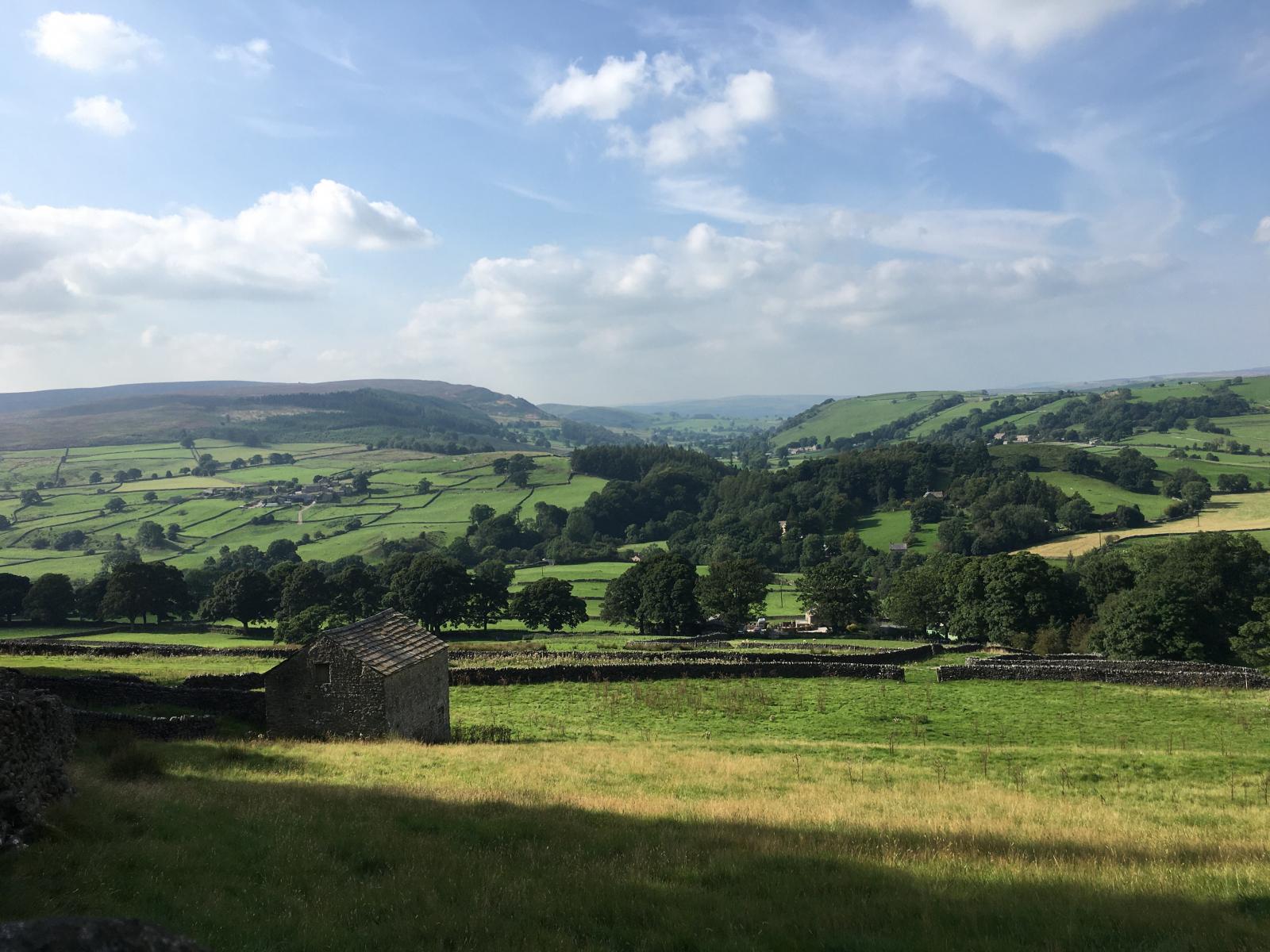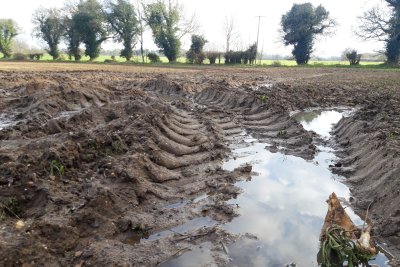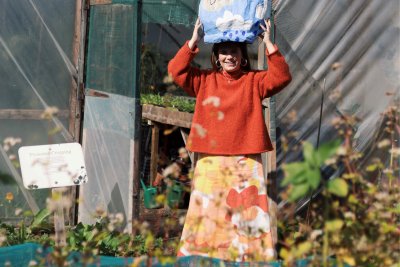Blogs • Sustainable Farming Campaign
Aiming for an environmental future: An update on ELM
Progress is being made by Defra on the Environmental Land Management (ELM) schemes. They have been working hard to build key components of ELM to start to bring it to life. The Sustain alliance has been in the privileged position of taking part in the core stakeholder group and co-design process, and we will continue to find ways to help Defra build an ambitious set of farming environmental schemes. In this blog, we recap what ELM is, some of the progress that has been made, and what should be coming down the line.

A recap on ELM
Environmental Land Management (ELM) will replace the Basic Payment Scheme (BPS) and Countryside Stewardship (CS) that the UK had under the Common Agricultural Policy (CAP), and still has for the foreseeable future. The premise of ELM is based on delivering ‘public money for public goods’, meaning farmers and land managers will be paid to deliver things such as improving biodiversity, reducing pollution to water and air, sequestering more carbon, and creating more access for the public.
ELM is split into three schemes:
- Sustainable Farming Incentive (SFI) – paying farmers to change or adapt their farming practices by taking groups of actions under SFI standards.
- Local Nature Recovery (LNR) – paying farmers and land managers to manage habitats better and find ways to connect this over the local landscape.
- Landscape Recovery (LR) – paying landowners to do nature recovery by doing such things as afforestation or peatland restoration.
In theory, ELM should be noticeably different to the CAP schemes where most of the budget is used as subsidies to help prop up farming incomes (although this may change under the recent set of CAP reforms). Farmers operate within fairly volatile and harsh markets, and therefore, this sort of support made sense at the time of its creation. In today’s world where we understand the need to support outcomes for climate and nature (which is subsequently good for farming), change is needed.
The £2.6 billion annual budget for farming is guaranteed up until the end of this Parliament, which is currently set to be May 2024. After that, there is no clarity on what the budget will be and how long the Government will be willing to support environmental farming and land use schemes. Earlier in 2021, Defra suggested that they would split the ELM budget three-way between the three schemes mentioned above. The longer-term funding for ELM and the split between the three schemes is somewhat up in the air and also depends on HM Treasury and their ‘value for money’ assessments.
Farming policy is devolved, so in this blog we are only talking about the changes that English farmers will experience. Scotland, Wales and Northern Ireland are also in the process of creating and implementing their own farming policies, schemes and regulations.
Where has progress been made?
Defra have made some good progress on designing the SFI scheme. They have laid out their core SFI standards and have built the groups of actions that farmers will have to do as part of delivering an SFI agreement. They have started the first ELM pilot in autumn 2021, working with over 900 farms to further test the SFI. This is a not a huge number given how many farms they want to reach eventually (80,000) but we are pleased to see a range of sectors and sizes involved, including horticulture. One of our key concerns is that farms under 5 hectares are not involved as much as we would like and it is critical that Defra seek to change this before we progress into 2022.
The pilot will help Defra to adapt the scheme over the next few years before it is fully launched in 2024. They will also be launching a narrow version of the SFI in 2022 which will only provide some financial support under the:
- Arable and Horticultural Soils Standard
- Improved Grassland Soils Standard
- Moorland and Rough Grazing Standard
- Animal Health and Welfare Pathway
We understand that this is one step on the ladder towards implementing the SFI more fully, but it’s important we also recognise that the SFI 2022 scheme is unlikely to start the delivery of public goods, as it is more geared towards helping farmers do some of the more basic stuff like nutrient management plans and animal welfare reviews.
However, there are concerns that not enough progress has been made on ELM. Two reports, one by the National Audit Office (NAO) and the other by the Efra Select Committee, highlight some of these:
- Defra have not made enough progress on Local Nature Recovery (LNR).
- Agricultural policy teams in Defra are not working in a joined-up way.
- Defra have not set SMART objectives for ELM, nor a vision for farming.
- The number of farmers who applied for the SFI pilot was lower than expected.
- Reduction of subsidies without higher SFI payments is risky for many farms.
What are some of the key indicators of success for us in terms of the progress of ELM?
- Monitoring and analysing if a broad set of public goods outcomes are being achieved from ELM on both the farm and the landscape level.
- Committed to ratcheting up the ambition of ELM to ensure that it is delivering public goods.
- Open to including system-based approaches alongside the asset-based approach already being taken.
- Ensuring ELM supports farmers to start transitioning to agroecology.
- Farmers have access to affordable and independent advice on all aspects of the schemes to help achieve uptake and delivery.
You can read our paper on how agroecology and whole farm systems can deliver multiple public goods
What is still missing?
Objectives and a vision
Details on LNR are very scant and are being conflated with the new statutory Local Nature Recovery Strategies (LNRS) set out in the Environment Act (which could mean only ‘nature’ and not wider public goods outcomes), and it is unknown how the three ELM schemes will interlink with each other, and the wider Agricultural Transition Plan set of grants.
We feel that a vision for what farming will look like at the end of the agricultural transition period is missing, which is evident in this lack of join-up between schemes, grants and regulation changes. Defra are working on SMART objectives, but these must be laid out before the 2022 scheme is fully up and running.
We also need a much clearer outline of how Defra will adapt ELM schemes as they learn from the pilots that will take place between now and 2024. What is the learning process? And will it be transparent (i.e. will farmers, stakeholders, and even the public, get to see this)?
Ratcheting up the ambition of ELM and the SFI
We feel the SFI lacks the sort of ambition that is needed to deliver public goods. It needs to start somewhere and it has a major job to do in convincing a larger group of farmers – more than those in current agri-environment schemes – to get onboard. But, we want Defra to lay out how it intends to rachet up the ambition of the SFI scheme during the agricultural transition period to 2027. It is very possible to make the SFI standards work in both ways—bringing farmers up to a better baseline while also taking them on the journey to agroecology.
We know there is no ‘one size fits all’ approach, so it’s critical Defra think beyond the current set of boundaries they have set. The levels set within each SFI standard should act like a ladder, helping and incentivising farmers to move up to the advanced ones. Further to those already in play, we would like to see a Mixed Farming Land Management standard given the huge benefits from the assets involved in mixed, diverse farm systems.
We need a clearer explanation on how farmers can deliver in more than one way through ELM. For instance, how will farmers be able to stack different agreements on their farm—one for SFI and another for LNR? What might that look like and how can it be workable for a farmer?
A land management plan will be a critical tool in helping farmers get to grips with the public goods assets as part of their business and planning, so we hope to see this in all the final schemes when they are rolled out in 2024. Currently, the LMPs are not going to be part of SFI and this needs to change.
On a more practical level for the SFI scheme pilotting, we would like to see Defra co-design and add three more standards: agroforestry, mixed farming, and public engagement. And we want to see all schemes from the roll out onwards be available for all farms with no size limit or eligibility criteria linked to receipt of BPS. One of our criticisms of the scheme is that it continues to place farming into specialised farm types (i.e. arable or grassland), rather than supporting more farmers into mixed agroecological farming systems.
Rewarding farmers for delivering public goods
Defra needs to consider how it can be more innovative with its payment structures. Using an income foregone plus costs design isn’t necessarily going to cut the mustard. We have already heard from several farmers that the payment rates in the SFI pilot and SFI 2022 don’t add up economically, whereas we understand some have been able to make it add up with some initial calculations. Feedback from some of the SFI Test and Trials suggests the higher levels of SFI standards do not pay enough to be attractive, which could be a blocker to the SFI scheme delivering public goods. We believe the schemes need to pay farmers to aim high.
We understand it is very difficult to pay for outcomes, as some will not be under farmers control, and monitoring and evaluating this can be inaccurate and very costly. It’s essential that payment structures support and encourage farmers into the higher levels of the SFI standards. Something like a top up payment could be integrated into the higher level of the SFI scheme, and/or a loyalty bonus where farmers deliver the higher level consistently over a number of years.
Monitoring if schemes are delivering public goods
Finally, we also need to see Defra lay out how it intends to monitor and analyse the effectiveness of the ELM schemes over a period. If they aren’t delivering for the environment and wider goods, the public need to know why and see Government commit to reviewing the schemes. What we don’t need is another 10 years of agri-environment schemes that fail to deliver the deep and meaningful environmental outcomes that we need to take place at scale for climate, nature, public engagement, and wider public goods.
Other concerns?
A confusing policy landscape
While one clear aim is to reduce the complexity of agri-environment schemes, we know that many farmers are starting to find the wider policy situation confusing. It’s difficult to know what schemes to go for over the next few years, while ELM is rolled out. It’s critical for farmers to know what to apply into, as the reduction in BPS will hit many farming incomes hard. Defra, along with stakeholders, need to help farmers wade through this complexity to find the right path for them. The new farm resilience advice scheme is clearly a valuable and free way for farmers to get up to speed and all farms should look at joining one.
The objectives and vision of the whole Future Farming and Countryside Programme (FFCP) needs to be set out in a roadmap so that farmers and land managers know where policy is taking the sector over the next 7 years. And within that, we need to know how the new regulations fit into the vision
Impacts of Trade Deals
While new trade deals are not directly linked to how ELM is designed, they could impact on the success of ELM when it comes to number of farmers engaged and number of farmers aiming high in the schemes. British agriculture is hurtling towards a juxtaposition - do farmers chose to intensify and expand in size or stocking levels? Or be more extensive and find niche markets that will pay a premium? Or something in between?
Our concern is that many farm businesses will decide to go for the first choice when we need the whole farming sector to head in a common direction towards agroecology and regenerative agriculture. If the UK Government continues down the current trade deal trajectory, it may find that it is undermining British food and farming standards as well as the economic viability of British farm businesses.
A complex legislative landscape
It would be helpful for farmers and stakeholders to also know how the Environment Bill, COP26 and Net Zero Strategy, the Local Nature Recovery Strategies, food security reporting requirements, and other policy and legislative areas will shape ELM in the future. Government needs to work in a joined-up way and their upcoming Food Strategy could provide a platform to do so.
The next 12 months will be important. We will know how the SFI pilot is going, whether the SFI 2022 scheme is proving helpful, what new standards are being trialed, and more detail on the other components of ELM and the Agricultural Transition Plan.
Let’s work together
The Sustain alliance will continue to work with Defra, bringing in the voices of agroecological and regenerative farmers into the fray, as we believe that together we are much stronger when it comes to delivering a better system for farmers, climate, nature, health, and people.
Published Friday 12 November 2021
Sustainable Farming Campaign: Sustain encourages integration of sustainable food and farming into local, regional and national government policies.





